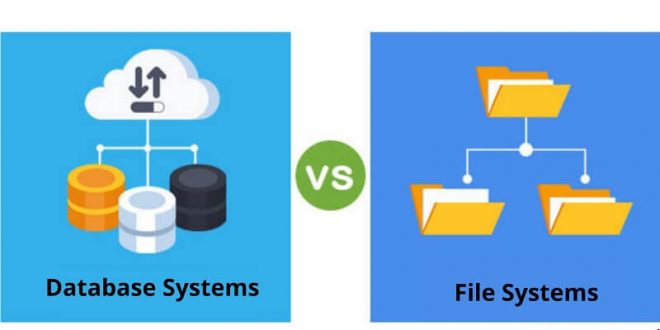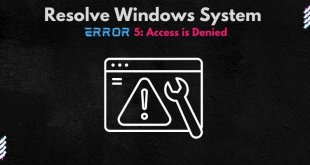In everyday life, data needs to be stored for various reasons, and professionals for database management systems should be hired for the task. In this article, we will discuss database systems vs file systems.
For instance, you might need to collect and store information to maintain daily expenses, information regarding students, many reports, a list of books in a library, and more.
This data should be stored in one place to be retrieved easily as and when required. At the same time, the source that stores the database should-
- Should allow the user to retrieve the information later at any given point
- Should permit the user to add details or further information whenever needed
- Should allow the data to be modified as and when required
- Should permit the user the scope to delete the data when no longer required
In the past, before the advent of computer systems, data or information was stored on paper in file systems. One had to search these files to collect data.
However, the process being manual was tedious. Moreover, one had to know the specific category and date of the data to be searched to retrieve it from the filing system.
Challenges Of The Conventional File System
The challenge arose when the data had to be modified or deleted. If the volume of data was limited, this task was an easy one.
However, in the case of a huge amount of data like in libraries or students in a school or employees in an organization, or the customers of a business, the task of conventionally collecting and maintaining data was full of hassles and inconvenience.
The staff had to leave core tasks and spend hours searching for the relevant pieces of information in papers and files. It was a mammoth task workplace productivity became adversely affected.
The advent of the computer system and databases resolved these problems. However, even today, some businesses and small enterprises have not embraced the database system, which is where they fail to compete with their peers who have switched to database systems from the conventional paper filing systems.
Software Filing Systems
With the advent of computer systems, paper filing systems gave way to software file systems. The latter was arranging files in a medium for storage like a pen drive, DVD, disk, etc.
This storage medium assisted users in organizing important data for simple file retrieval when needed. The system primarily comprises various types of files like mp3, txt, doc, mp4, and more that can be grouped conveniently into directories
This file system helps users manage the technique of reading and writing data into the medium of storage. The system can be installed in a computer system directly and permanently compatible with Linux and Windows systems.
The Advent Of The Database Management System
The database management system or DBMS refers to the software that stores and retrieves the user’s data while considering its suitable measures for security.
This software comprises a large group of software programs that assist in the manipulation of the database. It accepts the data request from the application and guides the DBMS engine to offer particular data.
In big systems, the database management system helps users and other 3rd party software retrieve and store it.
What are the primary differences between a database management system and a file system?
Skilled experts from the credible company in database management and administration, RemoteDBA.com, point out the following key differences between a Database Systems vs File Systems-
- The file system refers to software that can manage and organize the data files in the medium of storage. The database management system is the software application deployed for retrieving, making, and managing the data.
- The presence of a mechanism for crash recovery is absent in the file system. However, modern-day database management systems have a mechanism for offering crash recovery.
- Data inconsistency is high in file systems, whereas data inconsistency is much lower in the DBMS.
- There is no support for a complicated transaction in a file system, whereas, in the database management system, it is simple for you to incorporate a complicated transaction with SQL aid.
- The concurrency facility is not present in the file system, whereas it exists in the database management system.
Database Systems vs File Systems
The following table compares the Database Systems vs File Systems-
| File System | Database Management System |
|---|---|
| A file system is software that collects and manages the data in a storage medium. It has control over how the data should be stored and accessed. | The database management system refers to a software application that creates, manages, and stores information on a single platform. |
| It offers you a detail of the data representation as well as its storage | The DBMS hides the detail but offers the user an abstract view of the information |
| The storage, as well as the retrieval of data, cannot be done effectively in the file system | The database management system is simple and effective to use as there are diverse way of techniques for storing and retrieving data |
| You will not get a process for data recovery | A process for data backup is available in the DBMS |
| The security quotient is less | Users get a high level of security with the database management system |
| The process for centralization is difficult in the file system | The DBMS offers a good process for centralization |
| Offers no support for complex transactions | Complicated transactions can be implemented easily |
| Data redundancy is high | The occurrences of data redundancy is low |
| Lacks an efficient process for query processing | The process for query processing is simple, thanks to the presence of SQL. |
From the above, it is evident that database management systems are more convenient for modern businesses today. Small business owners can help remote database management administrators and professionals look after their systems at affordable rates.
Switching to a DBMS from a file system offers every business, no matter how small it might be, a host of salient advantages with success!
So that’s all from this blog. I am sure you liked this article on Database Systems vs File Systems. Thanks for reading.
 free html design Free html design templates
free html design Free html design templates






